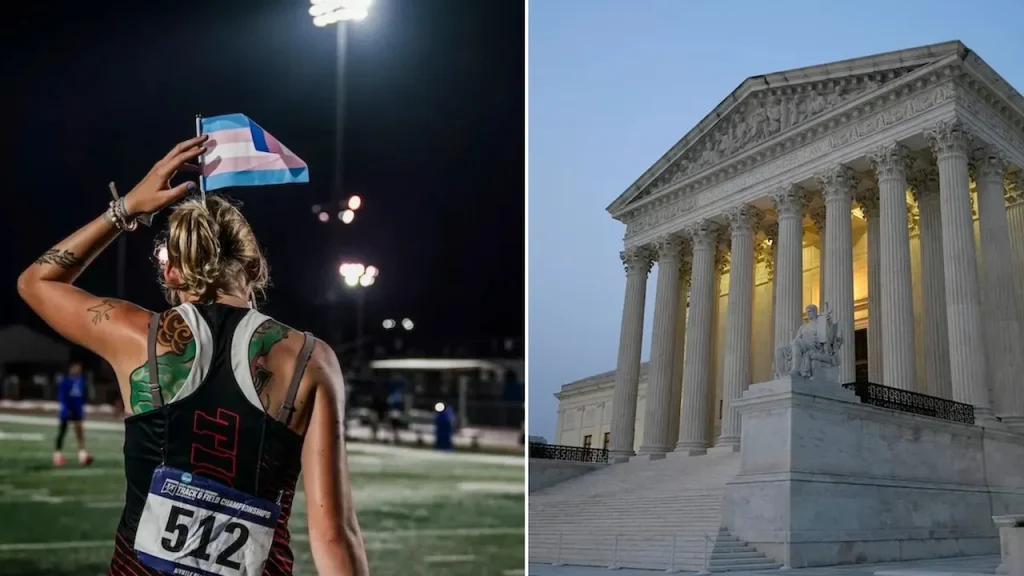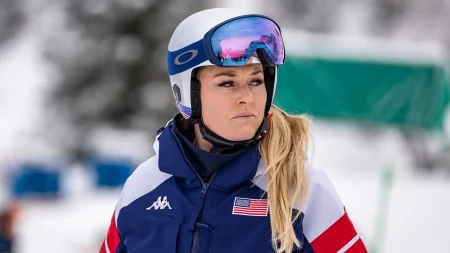The Battle Over Transgender Athletes in Women’s Sports Reaches the Supreme Court
In the heart of a nation grappling with evolving definitions of gender identity and athletic fairness, West Virginia Attorney General John McCuskey has taken a firm stance in defense of his state’s “Save Women’s Sports Act.” The law, which prevents transgender athletes from competing on female sports teams, is now at the center of a highly anticipated Supreme Court case that will begin in January 2025. The case, West Virginia vs. B.P.J., was filed by transgender athlete Becky Pepper-Jackson, who seeks to compete on girls’ high school cross-country and track and field teams. McCuskey’s position is clear: “The Save Women’s Sport Act is about making sports fair and safe for all involved. It is not about banning anyone from competition. Biological males can compete against biological males, but not against biological females.” His defense emphasizes preserving the protections established by Title IX and protecting female athletes from what he describes as inherent biological disadvantages when competing against those born male.
The legal journey to the Supreme Court has been winding. Initially, Pepper-Jackson was granted a preliminary injunction allowing her to participate on girls’ sports teams. The 4th Circuit Court of Appeals subsequently ruled that West Virginia’s law violated Title IX and the equal protection clause, prompting the state to appeal to the Supreme Court. Pepper-Jackson’s mother, Heather Jackson, has argued that the state law violates Title IX, which prohibits sex-based discrimination in federally funded education programs. However, the interpretation of Title IX is itself contested, with the Trump administration and West Virginia government maintaining that the law does not explicitly protect transgender individuals’ right to compete according to their gender identity rather than their biological sex at birth.
The case has drawn significant political attention, with 130 congressional Democrats filing an amicus brief in support of Pepper-Jackson. This group includes notable progressive figures such as Representatives Alexandria Ocasio-Cortez and Ilhan Omar, as well as House Minority Leader Hakeem Jeffries and former Speaker Nancy Pelosi. Conspicuously absent from the list are Senate Minority Leader Chuck Schumer and Senator John Fetterman, both recognized for their more moderate positions. The Democrats’ brief argues that “categorical bans—such as the bans in West Virginia and Idaho—undermine those protections and the ability of transgender students to be part of their school community,” positioning the issue as one of inclusion and equal rights for transgender youth.
The Supreme Court will simultaneously hear a similar case from Idaho, Little v. Hecox. This lawsuit was initially filed by transgender athlete Lindsay Hecox in 2020, who wanted to join the women’s cross-country team at Boise State University. Hecox challenged Idaho’s law preventing transgender athletes from competing in women’s sports, and was joined by a biological female student (identified as Jane Doe) concerned about potential invasive sex verification processes. A federal judge initially blocked Idaho’s law, and the 9th U.S. Circuit Court of Appeals upheld this injunction in 2023. Interestingly, after the Supreme Court agreed to hear the case in July 2024, Hecox attempted to withdraw the challenge, stating an intention to “permanently withdraw and refrain from playing any women’s sports at BSU or in Idaho.” This motion to dismiss was rejected by U.S. District Judge David Nye, ensuring the case will proceed to the Supreme Court as scheduled.
The heart of this debate extends beyond legal technicalities to fundamental questions about fairness in sports, the meaning of gender identity, and the interpretation of decades-old civil rights legislation in a rapidly changing social landscape. Supporters of laws like those in West Virginia and Idaho point to biological differences that they believe provide transgender female athletes with competitive advantages in strength, speed, and endurance. They argue that allowing transgender women to compete in female categories undermines the achievements of biological women and potentially threatens their safety in contact sports. McCuskey’s statement reflects this concern: “Women and girls have lost places on sports teams, surrendered spots on championship podiums, and suffered injuries competing against bigger, faster, and stronger males.”
On the other hand, advocates for transgender athletes emphasize the importance of inclusion, psychological well-being, and the right of all students to participate fully in school activities according to their gender identity. The congressional Democrats’ brief highlights the potential harm that exclusionary policies can have on transgender youth, who already face significant challenges in terms of acceptance and mental health. The outcome of these Supreme Court cases will likely have far-reaching implications not just for sports but for how gender identity is recognized and accommodated in various aspects of American society. As January approaches, the nation watches closely as the highest court prepares to weigh competing values of competitive fairness and inclusive participation, potentially setting precedent for years to come.















